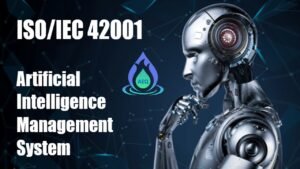ISO 9001:2015 Quality Management System
ISO 9001:2015 is a quality management system (QMS) standard developed by the International Organization for Standardization (ISO). It provides a framework for organizations to establish and maintain an effective quality management system, helping them consistently deliver products and services that meet customer and regulatory requirements. ISO 9001:2015 is applicable to any organization, regardless of its size or industry.
Here are key elements and principles associated with ISO 9001:2015 certification:
- Quality Management System (QMS):
- ISO 9001:2015 emphasizes the implementation of a QMS within an organization. A QMS is a set of policies, processes, documented procedures, and records that define how an organization achieves quality objectives and meets customer expectations.
- Process Approach:
- The standard encourages organizations to adopt a process approach to manage and improve their systems. This involves identifying, understanding, and managing interrelated processes as a system to achieve the organization’s objectives.
- Risk-Based Thinking:
- ISO 9001:2015 introduces the concept of risk-based thinking, requiring organizations to consider potential risks and opportunities that could affect the achievement of intended outcomes, including the enhancement of customer satisfaction.
- Context of the Organization:
- Organizations are required to consider the internal and external issues that can affect their ability to achieve the intended outcomes of the QMS. This includes understanding the needs and expectations of interested parties, such as customers, suppliers, and regulators.
- Leadership and Commitment:
- Top management plays a crucial role in demonstrating leadership and commitment to the QMS. This includes establishing the QMS policy, ensuring the integration of the QMS into the organization’s business processes, and promoting a culture of quality.
- Customer Focus:
- ISO 9001:2015 places a strong emphasis on understanding and meeting customer requirements. Organizations are required to monitor and measure customer satisfaction and take appropriate actions to address any issues.
- Continuous Improvement:
- The standard promotes a culture of continuous improvement. Organizations are encouraged to use performance monitoring, measurement, analysis, and evaluation to identify opportunities for improvement and implement necessary changes.
- Documentation and Record Keeping:
- While the standard has shifted from a prescriptive approach to a more flexible one, documentation remains important. Organizations are required to maintain documented information necessary to support the operation of their processes and demonstrate the effectiveness of the QMS.
ISO 9001:2015 certification is achieved through a formal assessment process by an accredited certification body. This process involves an initial audit, followed by periodic surveillance audits and a renewal audit, ensuring ongoing compliance with the standard. Successful certification demonstrates an organization’s commitment to quality and its ability to consistently provide products or services that meet customer requirements.
Request a Quote of Free Sample of ISO
ISO Certifications
- ISO 9001:2015 Quality Management Systems
- ISO 14001:2015 Environmental Management Systems
- ISO 45001:2018 Health & Safety Management Systems
- ISO 22000:2018 Food Safety Management Systems
- Hazard Analysis and Critical Control Points (HACCP)
- ISO 27001:2022 Information Security Management Systems
- ISO 20000-1:2022 Information Technology Management Systems
- ISO : Artificial Intelligence Management System
- ISO 50001:2018 Energy Management Systems
- ISO 31000:2018 Risk Management
- ISO 55000:2014 Asset Management System
- ISO 13485:2016 Medical Devices Management Systems
- ISO 26000:2010 Social Responsibility
- ISO 14040:2006 Environmental Management-Life Cycle Assessment Principles
- ISO 14044:2006 Environmental Management-Life Cycle Assessment Requirements
- ISO 14064:2018 Greenhouse Gases (GHG) Validation and Verification
- ISO 14067:2018 Greenhouse Gases (GHG)-Carbon Footprint of a Product (CFP)
ISO Certification Process

We Help you with
- Enhancing Customer Satisfaction
- Improving Processes
- Enhancing Products
- Pre-Qualification and Requesting Quotations
- Boosting Operational Efficiency
- Conducting Internal Audits
- Managing Risks
- Providing Training and Building Competence
- Cultivating Brand and Reputation
Benefits of ISO 9001 Certification
Effective communication between the company and AEQ INTERNATIONAL SERVICES is essential at every stage of the process. The company needs to work closely with us to resolve any problems, make changes, and continue adhering to the ISO standard. It is noteworthy that the particulars of the procedure may differ based on the selected ISO standard and the Certification Body’s policies.

Customer Satisfaction
Provide services that are trustworthy and dependable in addition to items that constantly satisfy customer needs.

Reduced operating costs
Saving money is the outcome of ongoing process improvement and the operational efficiencies that follow.

Improved stakeholder relationships
Boost the way that employees, clients, and suppliers view your business.

Legal compliance
Understand the ways in which laws and regulations impact your company and its clients.

Improved risk management
It is simpler to prevent and fix issues when there is greater consistency and accountability of products and services.

Proven business credentials
Verification conducted independently against an internationally accepted industry standard says a lot.

Ability to win more business
Certification creates opportunities because it is frequently required for supplies under procurement criteria.
Is ISO 9001 certification right for me?
- Prioritizing customer satisfaction
- Demonstrating effective leadership
- Engaging and empowering employees
- Applying system dynamics further is more precise.
- Committing to continuous improvement
- Taking decisions evidence-based.
- Building positive relationships with the beneficiaries.
Why become ISO 9001 certified?
Becoming ISO 9001 certified offers numerous benefits, summarized in few key points:
- The preventive feature is in place to do a risk analysis and pinpoint probable problem areas in advance, hence facilitating focused resource use.
- Seeking consensus from head managers in leadership makes sure quality assurance becomes to bed with the overall business motives.
- Evaluation by performance and self-regulation mark innovation, and they deliver benefits for shareholders.
- Organizational context dimension is comprehensively analyzed by focusing on problems surrounding quality management.
READY TO START YOUR JOURNEY?
We’ll clearly outline the expenses associated with getting and maintaining certified.
Not ready yet? Call us at (+974) 3044-4299 or request a call back to discuss your certification requirements.



